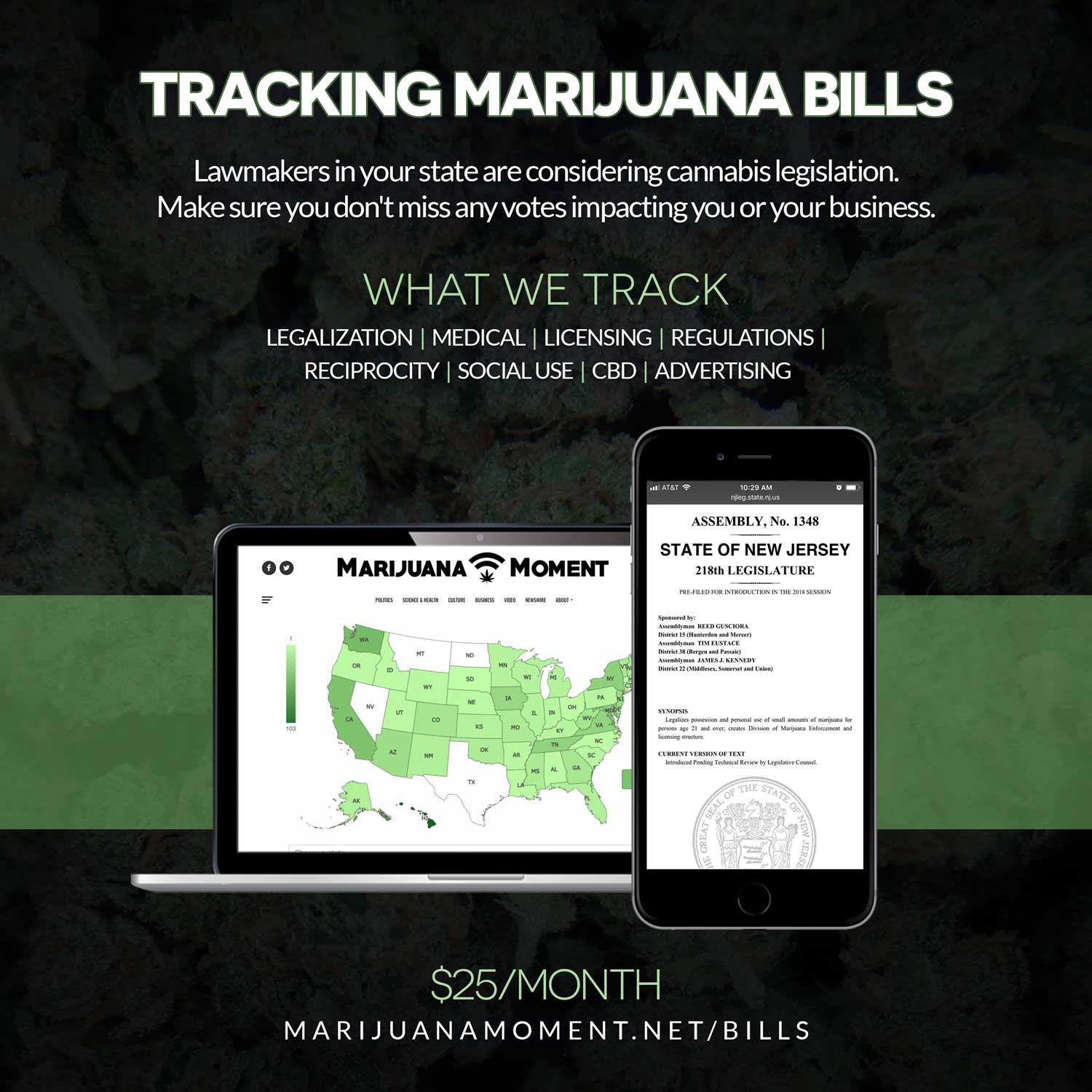Florida Gov. Ron DeSantis (R) says he would “respect the decisions that states make” on marijuana legalization if he’s elected president, despite his personal view that the reform has a “negative impact.”
At a campaign event in Iowa on Saturday, the 2024 Republican presidential candidate briefly shared how he would navigate the growing state legalization movement from the White House, pledging to adopt a hands-off approach like that of prior administrations from both parties.
DeSantis started by noting that Florida voters enacted medical cannabis legalization as a constitutional amendment at the ballot, and then he criticized what he views as shortcomings of broader adult-use legalization before explaining how he’d address it as president.
“I think the places that have done it for recreational use like Colorado, I don’t think it’s worked well,” he said in comments first noted by Florida Politics. “I think it’s caused problems in the cities. I think it’s created a black market.”
“We’ll respect the decisions that the states make on that,” the governor said. “But I do think some of these places like California and Colorado—I don’t know what they did with it, but, I mean, it has definitely caused a negative impact on their workforce.”
Colorado has been a frequent target of DeSantis’s criticism, with the candidate also claiming recently that the state’s illicit cannabis market is “bigger” today than it was prior to voters approving legalization in 2012.
Colorado Gov. Jared Polis’s (D) office pushed back against that position in a statement to Marijuana Moment last week, asserting that the reform is “curbing the illicit market, getting dealers off the streets, reducing youth use, funding school construction, supporting jobs and Colorado’s economy.”
“Colorado is happy to provide the Florida governor advice on how to increase economic and personal freedom like we have in the free state of Colorado,” a spokesperson said.
Meanwhile, voters in DeSantis’s home state may soon have the chance to decide on marijuana legalization at the ballot, depending on the outcome of a state Supreme Court challenge from Florida Attorney General Ashley Moody (R).
Despite voting for a handful of reform amendments while serving in Congress, DeSantis has done little to endear himself to the cannabis community since launching his presidential bid. He’s maintained steadfast opposition to the policy change and said last summer that he would not move to federally decriminalize cannabis if elected.
He also recently suggested that the increase in Florida’s medical cannabis patient population is partly due to people using the program as a “pretext” for recreational use.
Floridians, meanwhile, are ready for reform, polling shows. Nearly seven out of ten registered Florida voters say they support the marijuana legalization initiative, with majorities of every demographic surveyed in favor of the reform, according to a survey that was released in November.
—Marijuana Moment is tracking more than 900 cannabis, psychedelics and drug policy bills in state legislatures and Congress this year. Patreon supporters pledging at least $25/month get access to our interactive maps, charts and hearing calendar so they don’t miss any developments.Learn more about our marijuana bill tracker and become a supporter on Patreon to get access.—
Economic analysts from the Florida legislature and the governor’s office estimate that the marijuana legalization initiative would generate between $195.6 million and $431.3 million in new sales tax revenue annually if voters enact it.
Meanwhile, DeSantis signed a bill that took effect over the summer that added restrictions to medical marijuana advertising and manufacturing, prohibiting any products or messages that promote “recreational” cannabis use, while adding more stringent eligibility requirements for workers in the industry.
He also approved a bill in June that expressly prohibits sober living facilities from allowing residents to possess or use medical marijuana, even if the patient is certified by a doctor to legally use cannabis therapeutically in accordance with state law. All other doctor-prescribed pharmaceutical medications may be permitted, however.
The governor signed legislation in July banning sales of any consumable hemp products—including cannabis “chewing gum”—to people under 21, an expansion of an existing prohibition on young people being able to purchase smokable hemp.
In the legislature, meanwhile, a Florida Republican senator also introduced a bill last month to allow licensed medical cannabis businesses to take state tax deductions that they are barred from claiming at the federal level under an Internal Revenue Service (IRS) code known as 280E.
Conversely, another GOP state lawmaker filed legislation on Friday that would impose strict limitations on THC potency if recreational legalization is approved by voters.
Read More Feedzy

